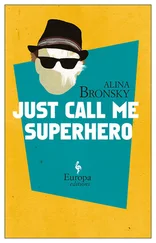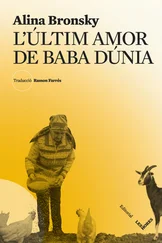His receptionist couldn’t understand what I wanted even after a long conversation. But then a side door opened and I saw the metal frames of my client’s glasses. I walked into the room where he was, sat down, and was soon telling him about my plan. He was going to secure me a place at medical school.
He laughed for a second and then was serious again. He said I didn’t have the educational qualifications. When I objected that I was a trained educator, he countered that we might as well put my old Russian credentials in a pipe and smoke them. I had to have a German high school diploma, and “at my advanced age” getting one would be “an ambitious challenge.” I said I definitely wanted to work at a hospital.
He had an idea, he said, though he wasn’t sure whether it was what I had in mind. He took his glasses off and polished them with a cloth, fidgeting around. Then he said he couldn’t make any promises but that he would be willing to lobby for a job for me as a cleaning woman at the hospital where he was affiliated.
It was a women’s ward, and you had to start very early. That was fine with me, because Aminat was no longer going to school and otherwise I just sat around all morning stewing about it. The work would distract me. It wasn’t much money, but it was a proper job — my first in Germany.
I signed a contract and received a white smock. I’d have to bring my own white slippers. I was extremely proud: I was a full-time employee of a hospital.
Some rooms housed three women, others were set up for just one per room. I cleaned quickly and well, and as my hands did the work I asked the women in the beds what was wrong with them. Some of them didn’t answer at all. But a few talked. There were some with uterine myomas, others had cysts, a few were trying to conceive, and a few were already pregnant and had to be on bed rest in order not to lose the baby.
Soon I got to know them all — the talkative ones and the silent ones — because I worked very quickly. And because I also cleaned the offices and conference room, I saw all the patients’ records, which were kept in large black folders in a rolling file cabinet. I knew all the women’s names, their birthdates, and their addresses — some of the addresses were familiar because I’d cleaned somewhere nearby.
I read their medical histories, though the writing was difficult to decipher. I looked in the medicine cabinet, saw who got what and how much, and filed away all the information in my head. I have a good memory and an astute understanding. I spent all morning at the hospital. After I’d gone through all the rooms I’d be sent to change the sheets or take care of some mess or other that had happened during the course of the morning. I also pushed patients down to the OR if the nurses were too busy. Some of the patients were scared before their operations. I told them everything would be fine, and since I knew what was wrong with everyone I was able to be very precise about what exactly would be fine for each of them personally.
After three weeks I felt totally at home at the hospital.
I put off my plans to enter a medical training program. There was enough to learn here. I began to be able to read the doctors and nurses’ writing more easily on the forms they filled out about the patients. I figured out where each type of medicine was kept. Then came the first time that a patient fresh from surgery was moaning in pain and I couldn’t find anyone to help her. I went and got the right little vials and added them to her IV drip. I watched over her for a while to make sure I hadn’t made a mistake and that she didn’t die. A day and a half later her husband picked her up and she walked out leaning on his arm.
At home I chatted with Dieter about the medical histories of the women in my ward. I called it “my ward” and also soon referred to “my women.” Sometimes Aminat came in and slouched down in a chair while we talked. She began to shower again, to iron her t-shirts, and to go to the salon to have her hair done. I continued to ignore her. She started going outdoors again. She never said where she had gone and I never asked. I ignored her. She began looking through her biology textbook again. I took care of my own business. I had taken a textbook out of a doctor’s office and read it all the way through at home. Somehow I realized that Aminat had also paged through it. I let her. Perhaps she’d become a renowned doctor after all.
Just as I thought her life might be heading in the right direction, one that didn’t lead to the gutter, she disappeared along with a large sum of cash from one of my drawers, money I had been saving for her education.
Dieter wanted to go to the police and register her as a missing person. Sulfia kept me from doing that, and I in turn kept Dieter from doing it. I should just leave Aminat alone, Sulfia said. It was no easy trick, since I figured I had lost her forever. I pictured her hacked up in the trunk of a car somewhere. But Sulfia laughed — as she often did at the most inappropriate times — and shook her head.
Aminat was eighteen and had run away from home. It was an embarrassment. Granddaughters didn’t run away from good grandmothers. At first I reacted all through the night to any noise in the staircase and checked several times a day that the phone was working.
Sulfia took all the blame. She said she’d been a miserable mother and that there’d been no way for me to compensate for that. She was right, of course. But we were still in a pickle. Dieter blustered, but I told him that if he filed a missing persons report, I would go to the police to file a very different report. He quieted right down.
In order to keep from going crazy, I poured myself into my work at the hospital. I studied the new patients and tried to figure out what was wrong with them from their facial expressions and body language. I sketched out a clinical diagnosis of my own, and then I read what my scientifically trained colleagues had written in their files. At first I made a lot of mistakes, but the accuracy of my diagnoses soon improved. I began to immediately recognize women who were unable to have children. They all looked the same. But I also could tell whether the fallopian tubes were blocked, or whether the women were too masculine, too thin, or were with the wrong man. I was surprised nobody else could see these things. Then came a day when I approached a patient who was pulling on some anti-thrombosis stockings in preparation for surgery and said in her ear: “If I were you, I wouldn’t let them remove my uterus. You might still need it.”
Her fingers, fighting with a sock, suddenly froze.
“It’s your body,” I said. “Don’t listen to their hogwash. You’re fine.”
I went into the hall and started washing a windowsill. I heard a door close. The patient had gotten dressed and run down the hall with her overnight bag. Her compression stockings lay on the floor next to her hospital gown. I picked them up and threw them in the trash, and began to strip the bedding.
The next morning I was fired.
Now I had time. Time I spent with Sulfia. I lay in bed talking to her. Then I got up and went searching. I went to the park. I usually avoided it because of all the homeless people loitering there. I talked to them now, asking their names and whether they’d seen my girl. I went to the train station and even took trains a little way to their next stop. I didn’t know whether Aminat had left town and if so in which direction she’d gone.
Sulfia walked along behind me but she didn’t participate in the search. Sometimes I thought I saw Aminat in the middle of a large group of people. I’d run to catch up, grab breathlessly at her arm — and a total stranger would turn to me. I carried photos around with me. Of Aminat somewhat younger, with nicely groomed hair and a smile that even then was unusual. And of Aminat as she had last looked, a disagreeable vision with straw-like hair and infected pimples on her forehead. Every day I removed her photo from my purse and showed it at least a hundred times.
Читать дальше












